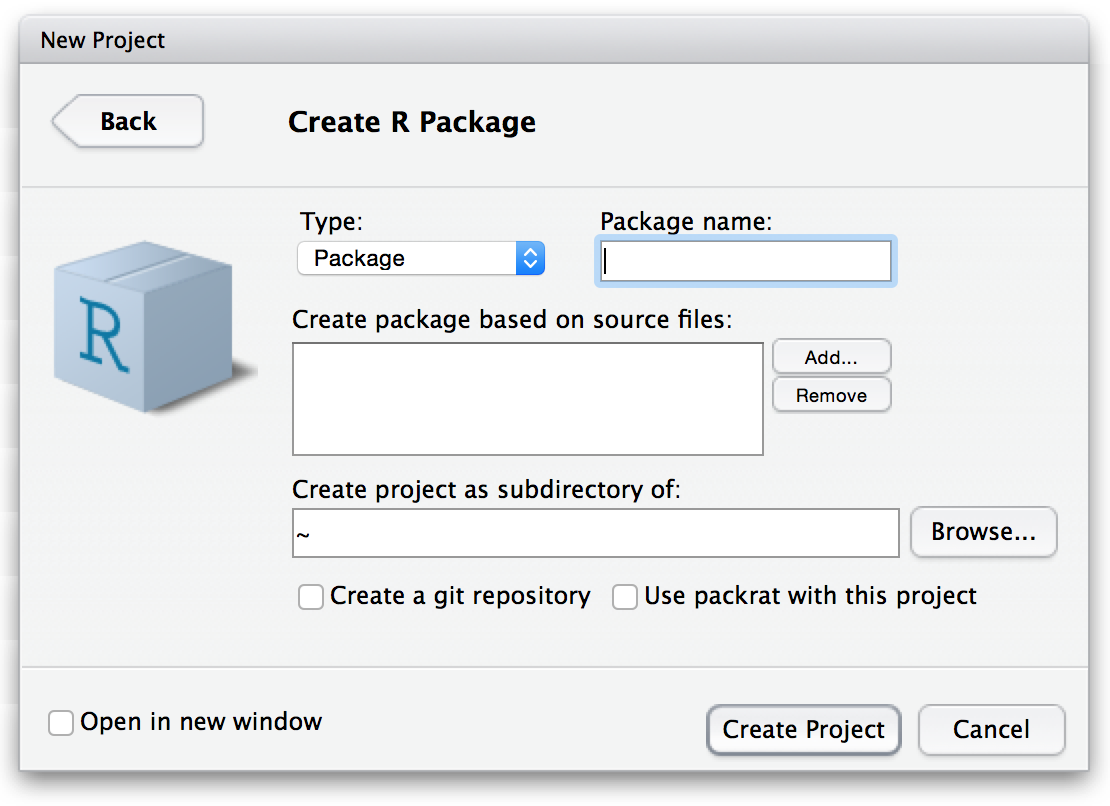Install Package In R

The post titled Installing Packages described the basics of package installation with R. The process is wonderfully simple when everything goes well. But it can be maddening when it does not. Error messages give a hint as to what went wrong but do not necessarily tell you how to resolve the problem. R packages installed with SQL Server. If you are installing a new R package on a computer that is being used as an R workstation and the computer does not have. To install this package, start R and enter: ## try if URLs are not supported source('biocLite('geneplotter'). You can modify R's notion of your library path on a one-time basis by specifying the lib= argument to install.packages. Suppose there is a directory called MyRlibs in.
This document shows you the steps to install R packages locally without root access on OSC's Oakley cluster. R comes with a single library $R_HOME/library which contains the standard and recommended packages. This is usually in a system location.
On Oakley cluster, it is /usr/local/R/3.0.1/lib64/R/library. R also has a default value for a directory where users can install their own R packages.
On Oakley cluster, it is ~/R/x86_64-unknown-linux-gnu-library/3.0 if the default R-3.0. Diamond Platnumz Ft Davido My Number One Remix Download. 1 module is loaded. This directory doesn't exist by default.
The first time a user installs an R package, R will ask the user if s/he wants to use the default location and if yes, will create the directory. A Simple Example First you need to load the module for R: module load R On Oakley, the default R module is version 3.0.1. Then fire up an R session: R To install package lattice, use this command inside R: >install.packages('lattice', repos='It gives a warning: Warning in install.packages('lattice'): 'lib = '/usr/local/R/3.0.1/lib64/R/library' is not writable Would you like to create a personal library ~/R/x86_64-unknown-linux-gnu-library/3.0 to install packages into? (y/n) Answer y, and it will create the directory and install the package there.
Setting the Local R Library Path If you want to use another location rather than the default location, for example, ~/local/R_libs/, you need to create the directory first: mkdir ~/local/R_libs Then type the following command inside R: >install.packages('lattice', repos='lib='~/local/R_libs/') It is a bit of burden having to type the long string of library path every time. To avoid doing that, you can create a file.Renviron in your home directory, and add the following line to the file: export R_LIBS=~/local/R_libs/ Whenever R is started, the directory ~/local/R_libs/ is added to the list of places to look for R packages and so: >install.packages('lattice', repos='will have the same effect as the previous install.packages() command. To see the directories where R searches for libraries, use the command:.libPaths(); Setting The Repository When you install an R package, you are asked which repository R should use. To set the repository and avoid having to specify this at every package install, create a file.Rprofile in your home directory. This is the start up code for R.